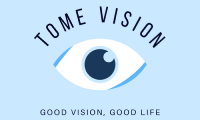The Role of Antioxidants in Protecting Vision
Our eyes are an essential part of our overall health and well-being. They enable us to see the world around us and experience the beauty of life. However, the aging process, along with various environmental factors, can negatively impact our vision. Fortunately, there is a powerful tool available to protect our eyes – antioxidants.
Antioxidants are substances that prevent or slow down damage to our cells by inhibiting the harmful effects of free radicals. Free radicals are highly reactive molecules that are produced as a byproduct of our body’s normal processes or are introduced through external factors such as pollution, UV rays, and smoking. When left unchecked, these free radicals can damage our cells, including those in our eyes, leading to various vision problems.
Let’s explore the vital role antioxidants play in protecting our vision:
1. Delaying Age-Related Macular Degeneration (AMD):
Age-related macular degeneration is a common eye condition among older adults and is a leading cause of vision loss. It affects the macula, a tiny spot near the center of the retina responsible for clear and sharp vision. Studies have shown that antioxidants, particularly vitamins C and E, beta-carotene, and zinc, can help delay the progression of AMD. These antioxidants neutralize free radicals and protect the macula from damage.
– Foods rich in antioxidants: Include colorful fruits and vegetables such as berries, oranges, spinach, kale, and broccoli in your diet to boost antioxidant intake.
– Supplements: Consult your healthcare professional about taking supplements to ensure you receive adequate amounts of these antioxidants.
2. Preventing Cataracts Formation:
Cataracts, characterized by cloudy or blurry vision, are a common age-related eye condition. Oxidative stress caused by free radicals is believed to play a significant role in the development of cataracts. Antioxidants help counteract this oxidative stress and prevent or slow down the formation of cataracts.
– Vitamin C and E: These vitamins are known for their potent antioxidant properties and can be found in various fruits and vegetables. Incorporating citrus fruits, kiwis, bell peppers, and almonds into your diet can increase the intake of vitamins C and E.
– Lutein and zeaxanthin: These antioxidants are found in high concentrations in the macula. Leafy green vegetables, eggs, and corn are excellent sources of lutein and zeaxanthin, which have been associated with a reduced risk of cataracts.
In addition to these two subheadings, here are some additional points in bullet list format:
– Regular eye exams: Frequent eye examinations are crucial for early detection and prevention of vision problems. A qualified eye professional can identify any issues and provide guidance on maintaining healthy vision.
– UV protection: Wear sunglasses that block out 100% of UVA and UVB rays to shield your eyes from harmful UV radiation. Prolonged exposure to UV rays can contribute to the development of cataracts and AMD.
– Quit smoking: Smoking increases the risk of developing age-related macular degeneration and other eye conditions due to the harmful chemicals and toxins present in cigarettes.
– Moderate alcohol consumption: Excessive alcohol consumption can negatively affect the liver and impair overall eye health. Limiting alcohol intake is beneficial for maintaining good vision.
In conclusion, antioxidants play a crucial role in protecting our vision by combating the damaging effects of free radicals. By incorporating antioxidant-rich foods, considering supplements, and following healthy habits, we can support our visual health and reduce the risk of age-related eye conditions such as macular degeneration and cataracts. Remember, good eye health is essential for a vibrant and fulfilling life.
